Open Letter To A Cancer Patient
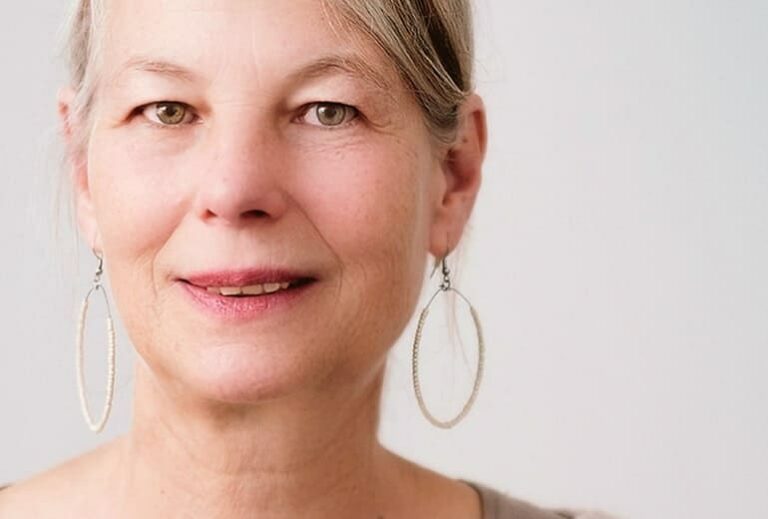
I recently had this conversation with a GreenSmoothieGirl follower who asked me:
What can I do to help my friend who has cancer?
I'm sharing our conversation here, because people often ask me questions just like hers.
In this article:
- How Western vs. Holistic Doctors View Cancer
- Here’s How the Conversation Went
- A Shared Experience
- Early Treatment is Best (But Always Begin When You Can)
- The Known "Standard of Care" Path
- Support and Love Your Friend
- We All Have Cancer: What I Would Do, If It Were Me
- How to Best Help Your Friend with Cancer
How Western vs. Holistic Doctors View Cancer
Those who follow my work tend to be more educated than most about the problems with the cancer industry and Western Medicine in general, as well as how diet contributes to the cancer epidemic.
People who have pre-educated themselves are far more likely to ask sophisticated questions if they ever face “The C Word.” And they are likely to venture outside the highly restricted, proprietary treatments of the oncology industry that I refer to as “Standard of Care” Medicine.
They are more likely to see cancer as completely different than an invader or a foe to be vanquished, which is how the oncology industry sees it. This is not how functional (root-cause) medicine sees cancer at all.
Folks who have already had significant exposure to other modalities and schools of thought are more likely to understand why alternative cancer treatment can be exceptionally effective.
These treatments respond to aberrant growths in the body and also help restore equilibrium and health for the patient who wants to live many more decades of healthy life.
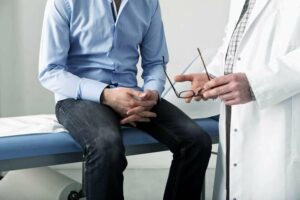
Pre-educated patients are more likely to ask sophisticated questions and venture outside the restricted, proprietary treatments of the oncology industry.
Those of us who know a lot about cancer options outside “Standard of Care’s” oncology industry are often anguished when people we love refuse to look at anything but the radiation and chemotherapy they are offered in the oncologist’s clinic.
I hope sharing this conversation helps you understand the psychology of a cancer patient, including those in your life who will be diagnosed.
This is an important conversation, with 50% of American men and about 40% of American women being diagnosed with cancer.
Like you, dear reader, I have lost many people close to me to this terrible disease. People I love, right this minute, are, as the cancer industry calls it, “battling” the disease.
But I’ve also been studying cancer for 25 years, and I’ve traveled to 19 clinics all over the world, interviewing the world’s best functional medicine doctors, studying what they do, what works, what helps cancer patients heal.
I’ve also met and interviewed many cancer survivors—some of them who beat Stage IV cancers decades ago—and many who are in treatment.
I’ve asked them detailed questions about their experience, to learn from them and then share information with you, in 200+ posts on cancer, and alternative cancer treatment plans, over the years.
We will all face the cancer issue, in one way or another, in our families and communities.
Here’s How the Conversation Went
Heather: Hi, I’ve been following your work, including your worldwide cancer research, for many years. I have a friend who has been through four courses of treatment, and was never open to anything else that I brought up.
She’s now been sent home to die. She’s been given a few months to live. How can I help her?
Me: You can hold her hand, show up for her, and be there to love her, whatever her choice is, from this point forward.
Heather: She’s never been open to holistic treatment. I’ve talked to her about it a few times during her journey. Now that she’s failed out of conventional treatment, she is listening and says she’s motivated.
Me: I’ve been in this position many times. While there are many books you could suggest she read, the best resource I’ve ever seen, as a starting place, comes from my dear friend, Chris Wark.
Send her this link, and tell her you’ll follow up in 2 days, to chat about it. (You should read it, too! Since cancer touches all of our lives, we should all be educated.)
When she gets Chris’ “20 Questions for Your Oncologist” on that link, she’ll actually learn a lot to help her think differently about her diagnosis and treatment.
I used to suggest to people that they do the Gerson protocol. But the Gerson method, while very effective, is far more than just the diet part, and some of it is hard to do, particularly when you’re very ill, unless you have a full-time caregiver.
Chris’ cancer course, Square One, is absolutely everything that I, personally, would do, if faced with cancer, and even if one of my children was diagnosed.
It’s incredibly well-guided. It’s “Square One,” to take someone who feels like a deer in headlights, having just gotten their diagnosis, through all the emotional healing, dietary changes, and even supplements they should take, in a first stage, and then a second stage, of getting back to health.
Heather: What would you do, besides give her that link?
Me: Well, tell her you will follow up, in two days. When you do, if she hasn’t read it, she isn’t really motivated.
At that point, it’s best to just continue checking in with her on how you can support her. Then do that, whatever it is.
Heather: That seems like giving up.
Me: I remember that I thought the same, too. Let me share an experience.
A Shared Experience
My friend Shelley beat metastatic breast cancer about 18 years ago, without chemo or radiation (like my grandmother, my first influence, did when I was in high school).
Shelley changed to an all-raw, vegan diet, along with some other lifestyle changes, especially managing her stress load.
She put up a website years ago about her experience, and people would reach out and say, “My sister-in-law was just diagnosed—will you talk to her?” And Shelley said no.
I was little shocked when Shelley told me that she refuses to get on the phone with someone’s friend and relative. I dug a little deeper with my questions.
Her experience back then, 18 years ago, parallels mine exactly.
"You see," she told me, "if people don’t already have a deep mistrust of the methods of oncology, as well as a self-taught education in what the alternative cancer treatment plans are, they simply aren’t going to do anything besides what their doctor tells them."
They certainly aren’t going to opt out of chemo and radiation, even if they change their diet and do a few “integrative” treatments, too.
Their first meeting with an oncologist will scare the devil out of them, with the prognosis and statistics, and they will be told warm, promising things about their improved chances if they are treated with poison and burning rays.
Sadly, it’s about 4 percent of cancers that these treatments actually work for. The statistics are highly manipulated, and any “gains” in cancer treatment are generally due to the Stage 0 and Stage 1 breast cancers now being diagnosed en masse.
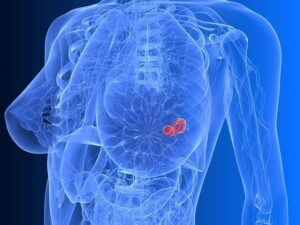
"Gains" in cancer treatments, or reduction of tumor, are manipulated statistics from en masse breast cancer diagnosis.
The statistics are so manipulated that Marcia Angell, MD, said this:
“It is simply no longer possible to believe much of the clinical research that is published, or to rely on the judgment of trusted physicians or authoritative medical guidelines. I take no pleasure in this conclusion, which I reached slowly and reluctantly over my two decades as an editor of The New England Journal of Medicine.”1
Your functional medicine doc will tell you that the body has detectable masses several times in a lifetime; your normal immune system will metabolize these masses so you never even know about them. So, these breast cancer patients would have lived, anyway, without treatment.
I have come to the same conclusion Shelley did, all those years ago. She is happy to talk to the sister-in-law herself, if it’s her reaching out to Shelley—rather than a concerned relative contacting her online.
Early Treatment is Best (But Always Begin When You Can)
Heather: Can’t my friend just start reading now and get up to speed? I mean, now she doesn’t have any more options.
Me: Sure, she can.
But like everything in holistic (or functional, or biological) medicine, your chances for success are greatest when you get on the treatments, wholeheartedly, early, before you have lots of chemical damage from chemo and burning rays from radiation, which continue to burn and mutate cells and cause secondary cancers.
That doesn’t mean there’s no hope for Stage IV patients who have been through several rounds of chemo and radiation.
If they get very serious and committed to the approaches of functional medicine, I’ve seen so many of them reverse the cancer and actually get well.
Heather: Can’t she do just some parts of the treatment?
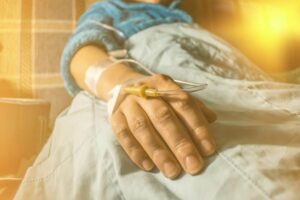
Submitting to chemo and radiation is a passive experience. Holistic treatment is more about actions to heal.
Me: Yes. But holistic treatment is different from what oncology offers. One of the biggest differences is that submitting to chemo and radiation is a totally passive experience.
Get in the chair, put the needle in your arm, take a nap, with a warm blanket over you.
This feels good, to a person with a new diagnosis. "The doctor will take care of me. Medicine will kill the cancer. I’m scared—paralyzed, really."
A patient with a new diagnosis is led to believe she has to act, immediately. And you and I know, from lots of life experience, that when we are in paralyzing fear, it’s not a great time to be making decisions. Right?
Heather: For sure.
The Known "Standard of Care" Path
Me: The path the oncologist leads you on is very tempting. They will tell you about the common short-term side effects, like neuropathy, hair loss, and brain fog.
They won’t tell you about the secondary cancers that chemo makes extremely likely (especially leukemia).
You show up for your radiation treatment. The oncologist’s office is virtually always lacking in knowledge about the role of nutrition. They’ll feed you sugary processed food while you have chemo. Wonderful, caring nurses will tend to your needs.
They’ll send a Stage IV patient, whose cancer is metabolizing their muscles, home with Ensure in a can.
It's what they know. Oncology does not study the massive evidence about how processed sugar, salts and oils, and animal products feed cancer growth.
It’s not taught in medical school. There’s no insurance code to bill, to counsel patients about lifestyle and nutrition, detoxification and rehab of the immune system.
So why would they? No education in it, no compensation for it.
Heather: I think I learned from you that oncologists actually get money for prescribing chemotherapy.
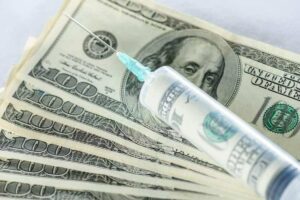
The oncology industry gains money for doctors who prescribe chemotherapy.
Me: They do. In private practice, which is most of oncology (the exception being public-health clinics a small number of doctors work for), they get a significant commission on chemo.
Heather: That seems like it should be illegal!
Me: Agreed. I don’t understand why this practice is allowed. Giving only this specialty, oncology, compensation for the drugs they prescribe, when others cannot, creates a terrible incentive to over-prescribe chemotherapy.
Oncologists are one of the highest-compensated specialties for this exact reason. I believe it’s about 40 percent of their income that comes from overrides on chemo.
Even 10 years ago, drug companies were allowed to give cash bonuses to the doctors who prescribed the most. That has now been banned by the AMA. As it should be.
But now the drug companies just take them on incredible, all-expense-paid trips, compensating them “in kind” for massively prescribing their drugs. A friend recently told me about a small group of oncologists, flown first class, Mercedes picking them up at the airport, to take them to a $30,000 venue to watch horse racing.
All of this to incentivize them to sell more chemo.
And the vast majority of chemotherapy being prescribed today is actually the exact same stuff they were prescribing in 1972 as part of Nixon's failed “war on cancer.”
Support and Love Your Friend
Heather: So, the best thing I can do for my friend is what?
Me: Love her, support her decisions.
See if she is going to marshal her family to help her recover. Work with them. You could do some of the significant food prep she hasn’t likely been doing, as she’s ill from the disease, possibly, but very ill from radiation and chemo treatments for sure.
If she doesn’t even read the “20 Questions for Your Oncologist” you link her to, which is a tiny step to take, know that the words she is saying, and her actual willingness to do what it takes, for a massive diet and lifestyle turnaround, are two different things.
Listen to the actions more than the words.

To best support your friend with cancer, love and work with them to help them recover.
We All Have Cancer: What I Would Do, If It Were Me
It sounds like a terrible thing to say, but once you’ve entered the oncologist’s office, you have entered the Fear Machine.
For 98 percent of people, even most who are holistic-leaning, they absolutely will not veer off the path their oncologist charts for them.
That's why I love to have a first conversation with these folks before they even have that conversation with an oncologist.
If I were diagnosed with cancer, I would walk into the oncologist’s office with a statement about what I do and do not want to hear from him:
- I so not want any prognostications.
- Do not tell me what the percentage odds are that I will die, with or without the treatments you normally prescribe.
- I’ll get back with you on my treatment options if my early choices aren’t working.
- I only want suggestions about tests for cancer markers.
- I’m open to hearing about surgery, depending on the cancer type, but not chemo or radiation.
- I will be getting treatment within functional medicine.
And if he or she takes issue with that, we don’t need to continue the conversation. I’d ask for my records to be transferred to someone open to just periodic cancer marker testing as I begin my chosen course of treatment.
I start a conversation with a newly-diagnosed cancer patient by asking them some questions, rather than firehosing them with info.
I want to know what their background is, how much they really know about cancer, and how much they want me to tell them about my research into other options.
The fact is, we all “have” cancer. Unlike most cancer patients, I have no confidence at all in a doctor’s post-surgery pronouncement: “We're pretty sure we got it all.”
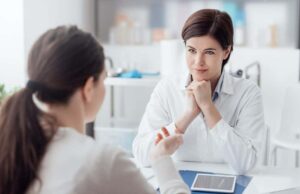
If I were diagnosed with cancer, I would walk into the oncologist’s office with a statement about what I do, and do not, want to hear from them.
Cancer is never really “Stage I.” It always exists in other parts of the body.
We're all making 50,000 to 100,000 cancer cells daily. In healthy people, the body’s immune system is taking care of it. When that fails, it seems obvious to me that the immune system’s function is my top priority. After all, it has to serve me for life.
What an oncologist won’t tell you is that we all have cancer, and the difference between a "healthy" person and a person “diagnosed” with cancer is that, for the latter, their immune system has been struggling and “down for the count” for many years before the growth developed a vascular system of its own and became substantial enough that it caused the person to become noticeably ill and seek out testing.
An oncologist sees cancer as a tumor, an invader, something to be destroyed. The functional approach sees the cancer as part of you. Fighting it is fighting yourself.
What's needed is a serious detoxification, as well as rebuilding a broken immune system.
Many treatments are available to achieve this goal, and they're extremely effective, especially in earlier staging and when the patient is highly committed and understands why she’s doing it.
I have sent my own friends and family to this exceptional clinic in Switzerland. They get treatments by European functional medicine MDs, and all their food and lodging is on-site.
It’s not cheap. Insurance companies have no interest in paying for this kind of care. Pharma and Big Medicine don’t want you to know there are other options, and they want you to believe that all of it, outside the cancer industry, is “quackery.”
But a 3-week stay at this clinic in Switzerland is, amazingly, cheaper than all the others I studied, while also being the “best of the best” in terms of quality of care.
How to Best Help Your Friend with Cancer
If your friend takes the first step, getting Chris Wark’s “20 Questions for Your Oncologist,” and gets his course (very inexpensive, the cheapest thing she’ll do in all of her care--he’ll offer it to her at a big discount), then some next steps in her education would be:
- Listen to my podcast episode with Dr. Veronique Desaulnier, Episode #72.
- Listen to my two podcast episodes with Chris Wark, #21 and #38.
These will bring her “up to speed” even more.
Chris Wark highly recommends my 26-Day Detox. In fact, he says it’s the only detox he ever recommends. And this is another great step she can take to jump-start the healing process. Thousands of Chris’ followers have done our detox, which I built from 20 years of research in what works.
We love supporting them through the process.
I’ve found that generally educated people, and people who were already more likely to question various institutions and orthodoxies, usually begin to seriously question “Standard of Care” treatment after they’ve been through a few rounds.
Sometimes even those who weren’t holistic-leaning at all in the beginning change their point of view significantly.
By the time they’ve been in that “Fear Machine” for a while, they’re often pretty angry and disillusioned.
If your friend takes these easy, early steps to get educated, jump in and help her with food prep, research, making the purchases for supplements Chris recommends online. You can help her do a serious detox.
Find out what her primary caregivers need, so she can be really dedicated to the process of getting well.
Heather: That’s a great approach. I don’t want to criticize her treatment choices of the past. They are in the past. I want to help her move forward.
Me: Agreed! One thing is clear from published research: people need to believe in their treatment.
Believing that chemotherapy is “medicine,” and could save you, is important if you’re going to choose chemo.
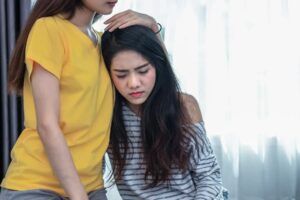
Believing in your treatment is medicine itself; pour love and support of any medical route into your friends and family members.
That’s why, AFTER they choose their treatment, I am silent about my own misgivings about this, and I just pour love and support on my friend or family member who chooses it. When they're already in chemo or radiation treatment, it's simply not the time to add to their already crippling fears.
One of many reasons I could never choose chemo, why I’d choose to prepare myself and leave the world sooner than I might have otherwise, rather than submit to chemotherapy, is that I know too much.
I would not see the needle in my arm as healing “medicine.” I’d be crying. I'd be emotionally and mentally resistant.
That does not serve. Others look at that needle and see the chemicals as agents to the rescue, miracle cures that kill bad guys. Their hope at a future. Once they make that choice, our job is to simply support and love.
After all, do we really have a choice in someone else’s care?
I believe a patient should get to decide what they do, with whatever time is left, as they leave the world. (Which we all will do.)
If she decides to eat ice cream and Ensure from here on out, she should enjoy the ice cream and the love of her friends. It’s just not a time for judgment or for tearfully begging them to eat something else, do something else.
If she needs food-prep help, that’s a great way you can serve. If she has metastases in her lungs and liver now, plus the massive toxicity in her body from the chemicals injected in her veins and the big radioactive exposure, her chances of survival are slim, indeed.
But, if eating a diet that starves some cancer cells and helps her immune system rebuild, gets her a few more months, what is that worth?
For many, that’s worth a lot. Think of trips she could take with the kids, memories she could make. Time she could spend preparing those she loves and having those meaningful conversations.
It’s not everyone’s choice. Some decide to die and focus on managing that process instead.
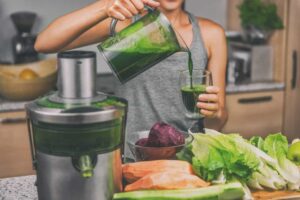
Juicing provides easily-absorbed nutrition and alkalinity, which cancer hates.
But the holistic approach is not a passive one. Packing your fridge with greens, root veggies, organic fruits, doing the juicing (very important for nutrient absorption and body oxygenation!), getting clear on the unresolved trauma in your life, the way lack of forgiveness has affected you biologically ... all of this is critically important in healing from the near-total shut-down of the immune system that allowed cancer to get the upper hand.
All of this is covered in Chris’s Square One course. It’s far more than a diet.
Heather: Thank you so much for taking the time to explain this to me.
Me: It’s a great honor. It’s actually a really spiritual experience, to sit with someone you love as they face a serious risk to their life, and find ways to support them. The ways they want. Even if their choices aren’t the ones we would make.

Disclosure: This post may contain affiliate links that help support the GSG mission without costing you extra. I recommend only companies and products that I use myself.
Sources
- Angell, Marcia. "Drug Companies & Doctors: A Story of Corruption." The New York Review of Books. January 2009, 56(1)
Posted in: Health Concerns, Holistic Care, Relationships




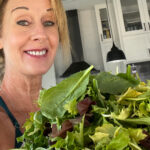





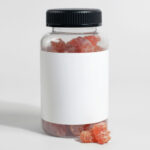
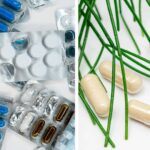

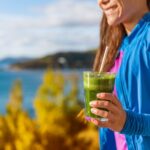
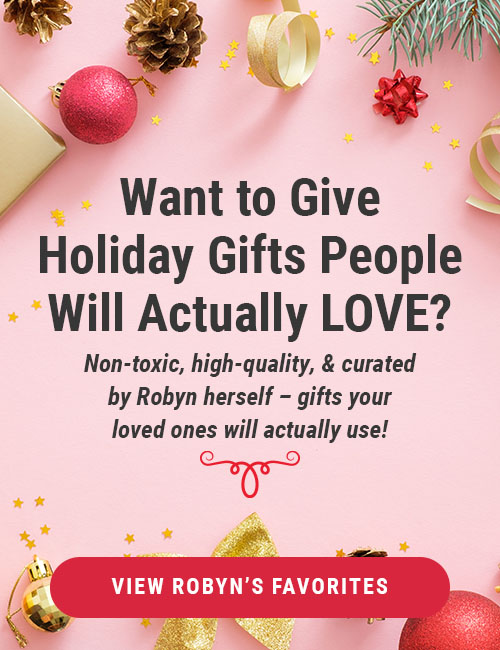
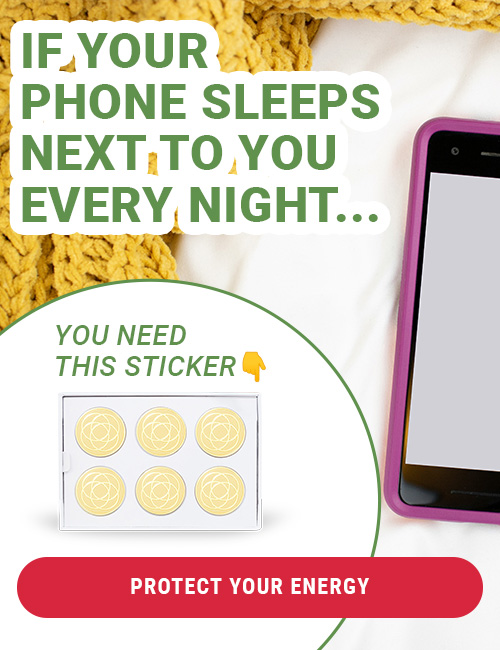

I agree with you when you wrote that "people need to believe in their treatment" and that "the chances for success are greatest when they get on the treatments wholeheartedly," whether they choose conventional treatment or opt for alternative and complementary cancer treatment.
I have a couple of friends who have survived cancer, while a relative is still undergoing treatment. They will definitely find this piece very helpful. Thanks!